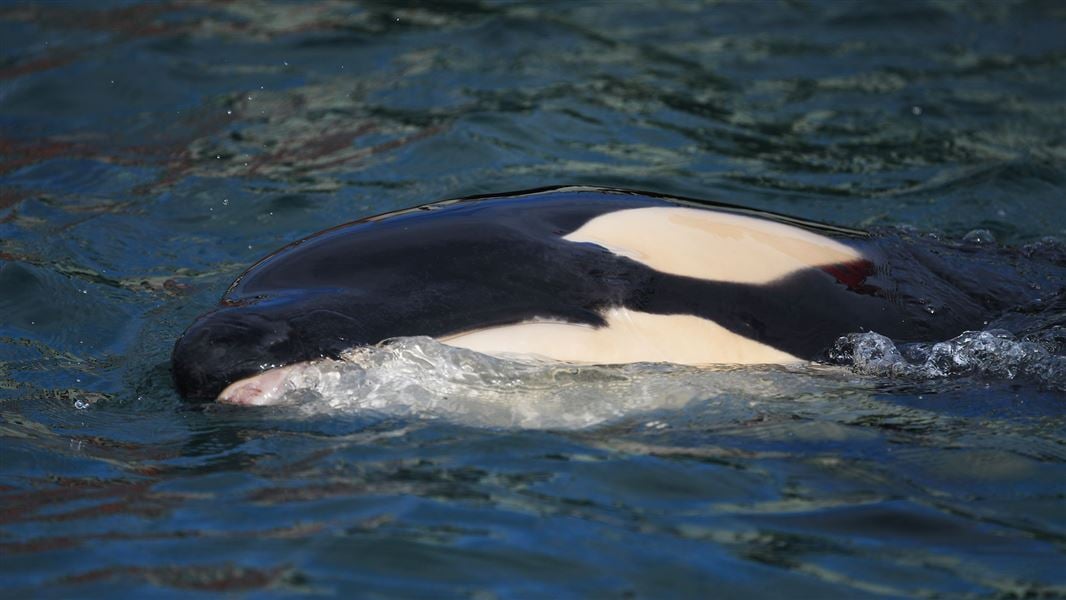Archived content: This media release was accurate on the date of publication.
Date: 22 July 2021
Department of Conservation (DOC) Marine Species Manager, Ian Angus, says the orca calf’s health has been assessed and vets have determined that it would be in its best interests to return it to a larger area.
“The calf has injuries to his pectoral fins and tail fluke and needs to stretch out in deeper water. It also has an issue with an inflamed eye which vets believe would respond better in salt water.”
The calf has also been more lethargic today and not vocalising as much as previously.
DOC has also been seeking assurances about water quality in the harbour before allowing people and the orca back into the sea.
“We are also keeping a close eye on the weather forecast but we are aiming to return the orca calf to the sea pen this evening. Because it is close to night fall we are keeping people at the site to a minimum required for health and safety reasons.”
The Plimmerton Boating Club site remains closed to the public to reduce stress for the orca calf.
“Again, we are in a dynamic and challenging situation for us to manage. Decisions are being made keeping the safety of people in mind, and the orca calf’s wellbeing and health is a priority.”
Ian Angus says we still need sightings of orca pods, preferably alongside photos or video if possible.
Any sightings of orca around the country should be reported to DOC HOT 0800 362 468 or via marinemammals@doc.govt.nz. We are particularly interested in pods in the North Island as we understand they are the most likely to be related to this calf. If the pod is in the lower North Island or Marlborough region this would give the best chance of successful reunification.
The focus is still to reunite the orca calf with its pod, which can be identified based on markings on the animals – which is why photo or video is so crucial.
This is day 12 of the orca stranding response.
Last Sunday (11 July), the orca calf was stranded on rocks near Plimmerton, north of Wellington. An ongoing operation to care for the orca calf is being led by DOC with support from Orca Research Trust/Whale Rescue Trust, local iwi Ngāti Toa Rangatira, and the local community.
DOC, veterinarians, and Whale Rescue/Orca Research Trust are receiving regular advice from international orca experts and veterinarians – information proving vital as decisions are made.
Updates on the stranded juvenile orca in Porirua
Contact
For media enquiries contact:
Email: media@doc.govt.nz
